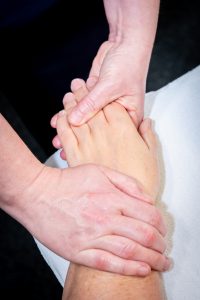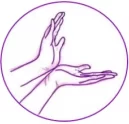Have you had a stroke? Do you care for someone who has? This is Stroke Awareness Month so please read on.
What is a stroke?
You may know there are three main types of stroke:
- Ischaemic- where a clot cuts off blood supply to a certain part of the brain
- Haemorrhagic- where there is bleeding in or around the brain
- Transient Ischaemic Attack (TIA)- often called a mini stroke with temporary minimal effects
All three types of stroke cause the supply of blood to an area of the brain to be cut off so the cells there die. Communication between brain and body is damaged so how speech and movement, for example, happen is affected.
Who might have a stroke?
It’s commonly thought of as happening to older people but 1 in 4 people who have a stroke in the UK are of working age. Even children can have a stroke. However high blood pressure, diabetes, high cholesterol, atrial fibrillation, being overweight, smoking, high alcohol intake are all known to increase the risk.
Recovery and Rehab
Recovery happens quickest in the first few days but It’s important to see it as a long-term process setting ambitious goals broken down into realistic steps over months and years.
The brain can learn how to re-wire itself to do everyday things in a different way. This is called neuroplasticity. Following a rehabilitation programme encourages the brain to make new connections from its healthy parts to the body. This will be an continuous ongoing process over months and years. Each time you do something, like take a step, that new connection is made.
Sometimes it can feel like it’s not working out, you’re going backwards. For example, when you’re unwell or tired at the end of the day or particularly stressed you might notice your balance is not as good or speech is more hesitant. That’s because those new connections are not as embedded in the brain as the original ones were, they are a little weaker so don’t stand up to strain so well. These setbacks are usually temporary so after a good nights sleep, or once an infection has cleared, your recovery will take off again.
How Therapeutic Massage can support stroke recovery

Therapeutic Massage can help people recovering from stroke in several ways.
- Post stroke depression- massage is known to improve mood by stimulating the release of hormones which make us feel happier
- “Neglect” of one side of the body- using a variety of touches and techniques the brain can train itself to be more aware and attentive to the side affected by stroke
- Physical changes in muscles and soft tissues- massage techniques and tools can be used to stimulate some muscles and relax and soften others according to what is advised by physiotherapists
Further Information
If you have had a stroke, or are a carer for someone who has, and would like to know more about how Therapeutic Massage may help support your recovery, please use the Contact Form here to get in touch. You may be asked to check with your medical team prior to having any massage.
There is also a huge amount of useful information on the Stroke Association website
